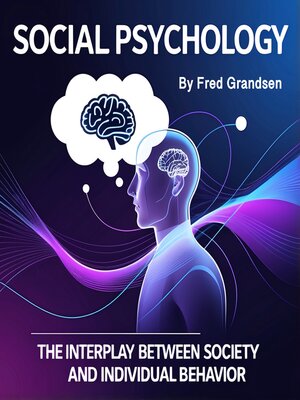Social Psychology
audiobook (Unabridged) ∣ The Interplay between Society and Individual Behavior
By Fred Grandsen

Sign up to save your library
With an OverDrive account, you can save your favorite libraries for at-a-glance information about availability. Find out more about OverDrive accounts.
Find this title in Libby, the library reading app by OverDrive.



Search for a digital library with this title
Title found at these libraries:
| Library Name | Distance |
|---|---|
| Loading... |
Social psychology is the scientific study of how individuals think, feel, and behave in social contexts. It explores the dynamic interaction between the individual and society, examining how social influences shape attitudes, perceptions, and actions. Unlike sociology, which focuses on large-scale social structures, or personality psychology, which emphasizes individual traits, social psychology is concerned with the situational and environmental factors that influence behavior. By understanding these processes, social psychology helps explain why people conform to social norms, how prejudices form, and what drives human interactions.
One of the core principles of social psychology is that human behavior is largely shaped by the presence, actions, or even imagined influence of others. This concept is central to theories of conformity, persuasion, and group behavior. Classic experiments, such as Solomon Asch's studies on conformity and Stanley Milgram's research on obedience, illustrate how individuals often adjust their behavior in response to social pressures. These findings demonstrate that while people may believe they act independently, their decisions and actions are frequently influenced by external social forces.
Another key area of social psychology is the study of social cognition—how people perceive, interpret, and remember information about themselves and others. Cognitive biases, such as the fundamental attribution error and self-serving bias, shape how individuals understand social interactions and make judgments about others. These mental shortcuts can lead to errors in reasoning and contribute to stereotypes and misunderstandings. By exploring these cognitive processes, social psychology helps explain how individuals navigate their social environments and how they sometimes misinterpret reality.







